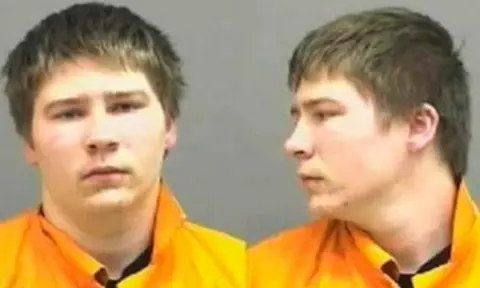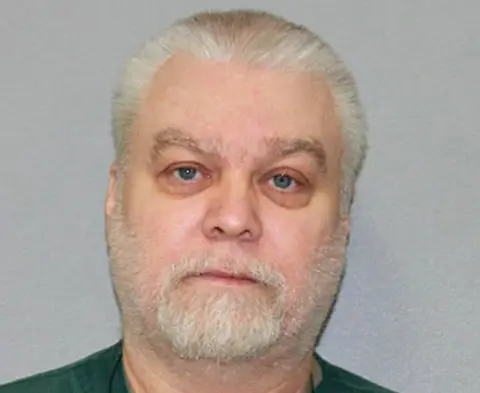Making a Murderer: Brendan Dassey decision upheld by court
 AFP
AFPAn US appeals court has upheld a decision to overturn the conviction of Brendan Dassey, whose case was the focus of documentary Making a Murderer.
Dassey and his uncle Steven Avery were convicted of murdering a young woman, Teresa Halbach, in 2005.
His conviction was overturned in 2016 on the basis his confession, made as a 16-year-old, was coerced.
The Seventh Circuit Court of Appeals, based in Chicago, backed the ruling on Thursday.
But the 27-year-old remains in jail, facing the possibility of a retrial.
Lawyers have vowed to fight to free Dassey, whose case garnered international attention after featuring in the popular Netflix series.
Confession 'by a thousand cuts'
In a joint statement, lawyers said they were "overjoyed", adding: "We look forward to working to secure his release from prison as soon as possible. As of today's date, Brendan Dassey has lost 4,132 days of his life to prison."
Making a Murderer investigated the killing of Ms Halbach, whose charred remains were found at Avery's car salvage yard a week after she went there to photograph a minivan for sale, and the subsequent court cases.
 AFP
AFPDassey, then just 16 years old, confessed to helping his uncle Avery - who had already served 18 years for a crime he did not commit - rape, kill and mutilate Ms Halbach.
He was sentenced to life in prison.
But the documentary filmmakers cast doubt on the legal process used to convict Dassey and Avery.
In 2016, Judge William Duffin ordered he be free immediately after finding investigators in the 2007 trial made "repeated false promises" false promises to Dassey by assuring him "he had nothing to worry about".
When considered with "Dassey's age, intellectual deficits, and the absence of a supportive adult", he considered the confession coerced.
But Dassey remained in jail while prosecutors appealed the decision.
In Chicago on Thursday, they lost that appeal.
The court described the method used to get Dassey to confess as "death by a thousand cuts", with judge David Hamilton saying the decision "breaks new ground and poses troubling questions for police and prosecutors".
The ruling means Dassey could be released in the next 90 days.
However, Johnny Koremenos, a spokesman for Wisconsin Attorney General Brad Schimel, said it seemed likely they would appeal it once more.
"We anticipate seeking review by the entire Seventh Circuit or the United States Supreme Court and hope that today's erroneous decision will be reversed," he told new agency Reuters in an email.
